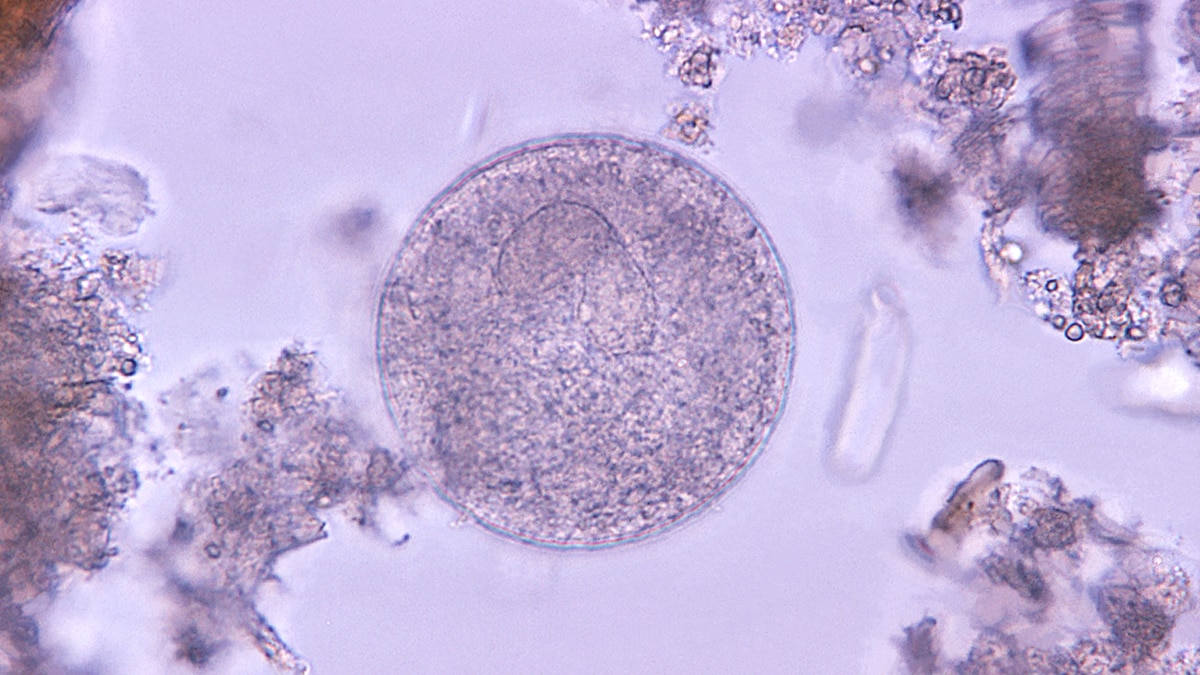Key points
- A parasite is an organism that lives on or in a host organism and gets its food from or at the expense of its host.
- There are three main classes of parasites that can cause disease in humans: protozoa, helminths, and ectoparasites.

Protozoa
Protozoa are microscopic, one-celled organisms that can be free-living or parasitic in nature. They are able to multiply in humans, which contributes to their survival and also permits serious infections to develop from just a single organism. Transmission of protozoa that live in a human's intestine to another human typically occurs through a fecal-oral route (for example, contaminated food or water or person-to-person contact). Protozoa that live in the blood or tissue of humans are transmitted to other humans by an arthropod vector (for example, through the bite of a mosquito or sand fly).
The protozoa that are infectious to humans can be classified into four groups based on their mode of movement:
- Sarcodina – the ameba, e.g., Entamoeba
- Mastigophora – the flagellates, e.g., Giardia, Leishmania
- Ciliophora – the ciliates, e.g., Balantidium
- Sporozoa – organisms whose adult stage is not motile e.g., Plasmodium, Cryptosporidium
